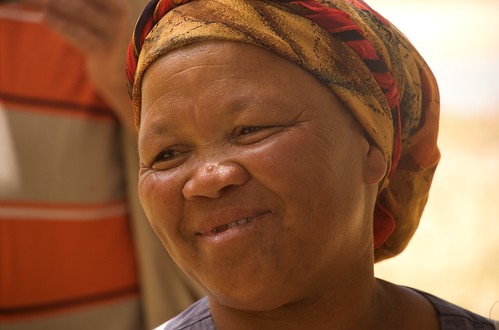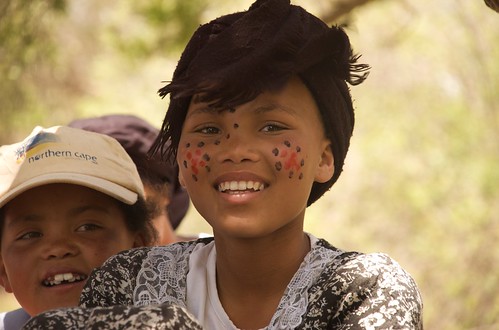About Us
Traveling Geeks is a consortium of entrepreneurs, thought leaders, authors, journalists, bloggers, technology innovators and influencers who travel to countries to share and learn from peers, governments, corporations, and the general public to educate, share, evaluate, and promote new, innovative technologies. The initiative was founded by Renee Blodgett and Jeff Saperstein in 2008.
Trips are funded by sponsorships from corporations, organizations and governments. The first tour was sponsored by the Israel Ministry of Foreign Affairs, a trip that successfully marked the proof of concept that could expand to other countries around the world.
Read MoreA Witness to the 1976 Soweto Uprising
Graeme Addison, a South African journalist who was on the scene at the Soweto uprising of June 16, 1976, tells us what he saw that day. Graeme speaks from the site of the Hector Pieterson memorial, commemorating one of the students who was killed by South African police that day.
The Soweto uprising is important in South African history because it marked a sharp turn in racial politics. It provided a spark for the black majority within South Africa to resist white rule and was the beginning of an 18-year struggle with the regime. It also applied pressure on the apartheid government from the international community, which condemned the government’s actions and eventually led to crippling economic sanctions.
We also visited the adjoining museum, which depicts in text and video and many dramatic, large black-and-white photographs the events of that day as well as the history and consequences. The museum does not allow photographs or video to be taken, so below is a sample of images taken from that tragic day.
Saffas marching in London – Let them vote
Homecomingrevolution blogged photos from News 24 today about the protest/march held in the UK that I could support and do support.
Here’s one of the photos:
Head over to the HCR Blog for more.
Similar Posts:This march in London I support – the right to vote
Protest against crime in SA to be held in LONDON??
Today is […]
The Watermark High – a musician that gets it
Yesterday I actually used social media to discover a new South African band that is putting themselves out there and sticking with the changing times.
The Watermark High started following me on twitter yesterday.
Luckily I was intrigued by the name of the follower and didn’t disregard them as one of the many twammers out there.
Why […]
First Film
Lesego Mlambo comes from the Braam Fischer section of Soweto and has spent the past year with the Joshua Youth Development Programme run by Metro Evangelical Services, working with the poor in the Johannesburg inner city. As part of his preparation for the Joshua programme, he was sent on an Outward Bound course, which is how we came to meet him in Mountain Sanctuary Park in the Magaliesberg. We went for a hike with him and other young Joshua’s who had been on Outward Bound. Inspired by David Sasaki, we put a camera in his hands. Here’s the result:
Ella Valley Wines Have Just the Right Balance
My friend Eran knows most of the geeks in Israel. As an Israeli who has been in the technology industry for well over twenty years, he is also tapped into the Isreali wine snob community. Thank God I have a friend down here who is. Who knew?
One of his wine ‘ins’ is his friend Doron Rav Hon, chief winemaker at Ella Valley in Netiv Ha’lamed He. He insisted we stop on the way to the Dead Sea. Okay, twist my arm hard will ya?
They distribute to the states and according to his other wine at Ella Valley (the owner), its available in northern California. He’s going to shoot me an email with a list of who carries their latest and greatest. It’s worth knowing. Here’s why.
While some winemakers avoid aging the wine in oak altogether, others don’t want their wine to be compared to Napa wines. “So much of the wine is over-oaked,” they say. “It’s unbalanced.”
I’m one of those people who love a lot of oak. In my chardonnays, I tell them: give me butter, give me vanilla, give me the cream. This makes my serious ‘white wine’ friends mad. I think it Doron mad too but he bit his tongue when I told him his latest Chard had ‘butter’ in the nose and on the palette.
Yet, it did give me a little butter, because it was barrelled in oak for about 14 months. The warmer climate dictates some of this. Doron is right about balance however and its what makes his wines so wonderful. His wines are not over-oaked and they have an amazing balance that most other oaked chards lack, particularly in Napa and Sonoma.
His 2004 Cabernet had the same refined balance. The finish was suburb with or without food. At around $25-30 a bottle, it is a better choice for the price than most you can find in the same category in northern California.
The wine isn’t organic but it is kosher as was their extra virgin olive oil, which they also make on-site. Unlike 99% of the vineyards I’ve been to around the world, it was tucked away down a dirt road behind other things, like a cow farm and a bunch of tractors. The owner is also in love with toucan birds, who are in danger of becoming extinct, a tragedy if this is true.
I’ve seen them in the wild in exotic places around the world over the years, including Costa Rica, bird watcher’s heaven. These were red-billed which tend to be rarer. It appeared to be mating season. So, while he was chasing her around the cage edging her closer to the entrance of their little ‘cave,’ we sipped and talked while birds chirped in the background and the hazy sun beat on our faces.
Nama Land Sovereignty in the Northern Cape Province
 For thousands and thousands of years the Nama people of Southern Africa maintained a nomadic pastoral way of life, tending their flocks of goats and sheep, gathering firewood, and collecting wild honey. Driving along the dirt roads surrounding Richtersveld National park you can still see the same lifestyle, supplemented by some modern conveniences like butane lanterns and plastic tarps.
For thousands and thousands of years the Nama people of Southern Africa maintained a nomadic pastoral way of life, tending their flocks of goats and sheep, gathering firewood, and collecting wild honey. Driving along the dirt roads surrounding Richtersveld National park you can still see the same lifestyle, supplemented by some modern conveniences like butane lanterns and plastic tarps.
Nama Iharu oms (huts) in the Richtersveld.
Land sovereignty has been a historic struggle for the Nama people. When Namibia – where the majority of Nama people then lived – was colonized by Germany, the Nama joined forces with the Herero and took up arms against their invaders from 1904 to 1907. This resulted in what today is called the Herero and Namaqua Genocide.
Herero people chained in 1904 by German troops.
According to the 1985 Whitaker Report on Genocide, an estimated 50 – 70% of all Herero people and 50% of all Nama people were killed. On the South African side of the border the Nama people were mostly left to their own as British and Afrikaner explorers searched for diamonds in the Northern Cape province. They continued their nomadic pastoral life with a policy of communal land ownership. Says Wikipedia: “Nama women still dress in Victorian traditional fashion. This style of dress was introduced by missionaries in the 1800s and their influence is still a part of the Nama culture today.”
You can see the influence in a video shot by Ray of a group of Nama youth performing an initiation dance, which marks young girls’ transition to adulthood.
Simon recorded a brilliant piece of audio of Cecilia, the mother of two of the young female dancers, singing a hymn in Nama.
Cecilia
Those British and Afrikaner explorers did in fact find their diamonds. Lots of them. In the 1920’s the South African state-owned mining company Alexkor evicted Nama residents from their diamond-rich land and began operations that would yield hundreds of millions of dollars to help support the country’s Apartheid regime. Since the end of Apartheid in 1994, however, new legislation allows communities to seek compensation for lost land and mineral wealth. The 3,700-strong Nama community launched their claim in 1998. Alexkor spent over a million dollars on legal costs, but in October 2003 the constitutional court ruled that the community was entitled to restitution, as well as to mineral rights. The court rejected their demand for a 90 percent equity stake in Alexkor, however, instead offering a 49% stake and a trust to benefit the Namaqualand community.
The Namaqua community now has more than $40 million coming its way. That is a big chunk of change for a group of 3,700 individuals. We had an opportunity to talk to local community leaders. I asked Leon Ambrosini, mayor of the Richtersveld municipality, how the money would be used, but he only answered in general terms.
My fear is that even with $40 million coming its way and a 49% stake in Alexkor, the quality of life and opportunities for those 3,700 Nama people will not improve much over the next ten years.
“We don’t want to get rich quick. We are solely thinking about the long term future for us and the children who will come after us,” said Floors Strauss, secretary of the Richtersveld Community Property Association, which will manage the $40 million. But I saw little evidence that the right investments are being made for sustainable development.
Nama girl from Port Nolloth.
I asked if there were any plans to build a college or university in the area, but there are none. (The entire province is without tertiary education.) The only specific expense we heard about was a $300 handout to each of the 3,700 represented in the court case. Which brings up some interesting questions: what if the money gets squandered? What if Alexkor becomes less profitable, jobs are lost, and the Nama people are actually worse off ten years from now than they are today? Land restitution in Zimbabwe, for example, is largely responsible for today’s shortage of food there as fleeing White farmers took off without transferring their agricultural skills.
My hope, obviously, is that in Richtersveld the right skills will be transferred to the Nama community so that they can manage their own development as they see fit. But to do so, I believe, will require an investment in education that community leaders don’t seem too concerned about. I’ll be keeping my eye on how things develop.
Extra bonus: Check out Lova’s summary of a fascinating conversation about land sovereignty and economic development in the Malagasy blogosphere. (The deal was later rejected.)
En Route to the Holy Land – A perspective for the Traveling Geeks
It’s a land of contradiction – equal parts historic, economic, social, political and religious.
But no matter who you ask, most people would likely agree that the collective set of countries called the Middle East comprise one of the most fascinating – and conflicted – parts of the world. In particular, one of these countries elicits an immediate and almost visceral reaction from anyone of whom you might ask: “What do you think about Israel?”
Last week someone asked that very question on Seesmic. Actually the question that Kfir asked was: “What do you know about Israel?” Here is the query in his words:
It wasn’t long before a wave of people responded. The discussion had intense moments – sharp discord and heated debate followed quickly by an interesting thing … something that almost resembled detente. politika ip information . domain owner parental blocker dns information . where is domain hosted . domain dns server . ip tech info . i cloud domain abuse . website down . similar sites word cloud
Landing in Israel: In the beginning, there was…….
An uneventful trip to Israel. That’s always a good thing when you’re traveling by plane to the Middle East. cote d’ivoire The entire plane clapped when we landed safely, which is something I haven’t heard since I was on an Aeroflot plane 15 or so years ago.
I went Delta – don’t get me started on the quality of their service. My words will only be of frustration and tears.
Tel Aviv has changed dramatically since I was last here. I’m here as part of a social media blogging expedition sponsored by the Israel Consulate. domain owner “It’s all about tech baby,” however our voices over the next week and a half will be about so much more than technology because Israel is about so much more. air distance calculator It’s a place of passion, innovation, complexity, intensity, contradiction, spirit and drive.
Together with nine other bloggers, I’ll be meeting with visionaries in the areas of tech, social media, renewable energy and the arts. All of our content will be aggregated to Traveling Geeks.com. Right now, we’re having a glitch with images, so you should continue to tune into our individual blogs as well to get the raw data.
Before the more structured agenda kicks into gear, it was necessary to head to the Dead Sea, a place of great healing and mystery. And venture to the desert which is where I am now; sitting in a zimmer listening to the sounds of birds, crickets and stray cats outside my window.
Below: on the road to the Zohar Junction, where more than twenty years ago, I stood on the side of the road for three hours trying to hitch a lift to Eilat. Hitchhiking is now apparently illegal in Israel for soldiers, who were frequent hitchers in the eighties and nineties. domain dns server . Now, its no longer safe.
Photo taken by: Susan Mernit web archive website down apache web server . word cloud
Blunt is the Only Way — Why Not?
I’m heading to Jerusalem today to explore the old and the new. It’s somewhat of an exploration of the past, of what I experienced so many years ago which will either be gone or dramatically changed. It is always this way.
It’s also a necessary exploration without any technology influence before our week of geeks and innovators begin. If you don’t really understand Israeli culture, their candid style and boistrous ways, its hard to truly understand why Israel is as natural for breeding successful start-ups as Silicon Valley has become.
A country roughly the size of New Jersey, most of the technology innovation happens in and around Tel Aviv, although that’s where everyone migrated to in the same way people in the states migrate to San Francisco, New York and LA for business opportunities.
While I’m only a third the way through Rosenthal’s The Israelis, there are two fabulous excerpts worth sharing about Israeli culture. In my experiences, these words hold a lot of truth, on my kibbutz so many years ago, buried in the core of my Israeli friends who live in Europe and the states and in the Israeli CEOs I’ve worked with since I moved to California.
She interviews BRM Technology’s Eli Barkat, an Israeli serial entrepreneur who says:
“To Israelis, the word ‘no’ is a dare. For example, when I tell an Israeli entrepreneur “the deal is dead,” he answers, “how dead? Is it still breathing?” There is no such thing is a dead deal. Israelis always try to find another way. You close the door on them and they jump in through the window.”
And this part is classic, so classic, I burst out laughing through the whole page.
“This proposal sounds interesting” confuses Iraelis. Israeli style is blunt. “This proposal won’t work.” Rarely do Israelis use sentences with phrases like “perhaps you might consider….” of “if you wouldn’t mind.” Instead, they might say “you’re wrong.”
And I’ll add to that. “Why the hell are you doing it that way?” or “Why can’t it happen? What needs to be done to make it happen?” I’ve received a few of those over the years.
It’s almost always with heart however. And its the heart and passion inside these innovators that I look forward to tasting and smelling over the next week and a half. website down similar sites . word cloud .
Peace in Africa – mining diamonds in the ocean
I blogged photos and a more detailed blog post about the Debeers mining ship previously on SA Rocks.
I know have a video from the day up on Zoopy! Here it is, watch and let me know what you think of Peace in Africa, the offshore mining ship. It really was a wonder of technology […]




















